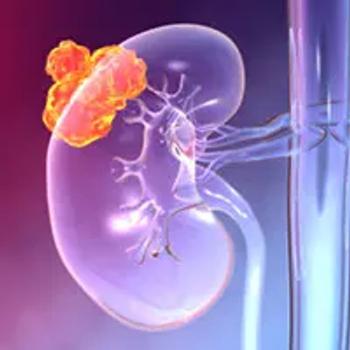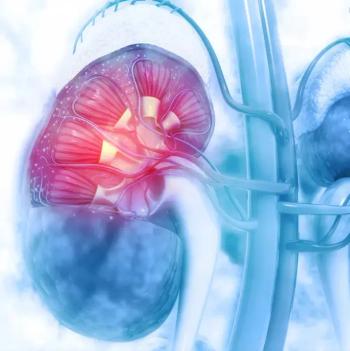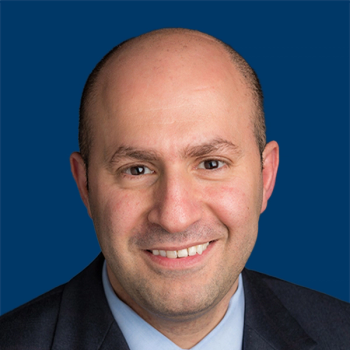
Dr. Subbiah on the Importance of Tivozanib in RCC
Vivek Subbiah, MD, discusses the utility of tivozanib in renal cell carcinoma.
Vivek Subbiah, MD, associate professor in the Investigational Cancer Therapeutics Department and center clinical medical director of the Clinical Center for Targeted Therapy, of the Cancer Medicine Divistion, at The University of Texas MD Anderson Cancer Center, discusses the utility of tivozanib (Fotivda) in renal cell carcinoma (RCC).
An unmet need for patients with RCC in the second-, third-, and fourth-line setting remains, says Subbiah. With multiple TKIs FDA approved and available in the clinic, it is a phenomenal time to think about how to sequence and combine these drugs. The goal is to offer the right treatment to the right patient at the right time, adds Subbiah. In this context, the phase 3 TIVO-3 study, results of which were published in the Lancet Oncology, now comes into play. In this study, investigators compared the efficacy and safety of tivozanib with sorafenib (Nexavar) in the treatment of patients with metastatic RCC in the third- and fourth-line setting. Results showed a median overall survival of 16.4 months with tivozanib and 19.7 months for sorafenib (HR, 0.99; 95% CI, 0.76-1.29; P = .95). At a median duration on study of 32.5 months, 20 patients remained progression free on tivozanib versus 2 patients on sorafenib.
Previously, results from the phase 3 TIVO-1 study led to the approval of tivozanib in the first-line setting in Europe, Subbiah adds. In the United States, however, that was not the case, says Subbiah. Interestingly, the TIVO-3 study was one of the first phase 3 studies to randomize patients to sorafenib or a VEGF TKI in post-immunotherapy patients in the third-line and beyond setting. Again, that is why this study is significant, because it demonstrates that VEGF is still active and a VEGF inhibitor with a longer half-life is still active in the relapse/refractory space, explains Subbiah. The long-term follow-up data from this trial is expected in the future, thus generating a great deal of excitement in this space. These results may shed further light on how best to sequence these therapies, says Subbiah. That is how tivozanib becomes important in the relapsed/refractory setting of RCC, concludes Subbiah.




































